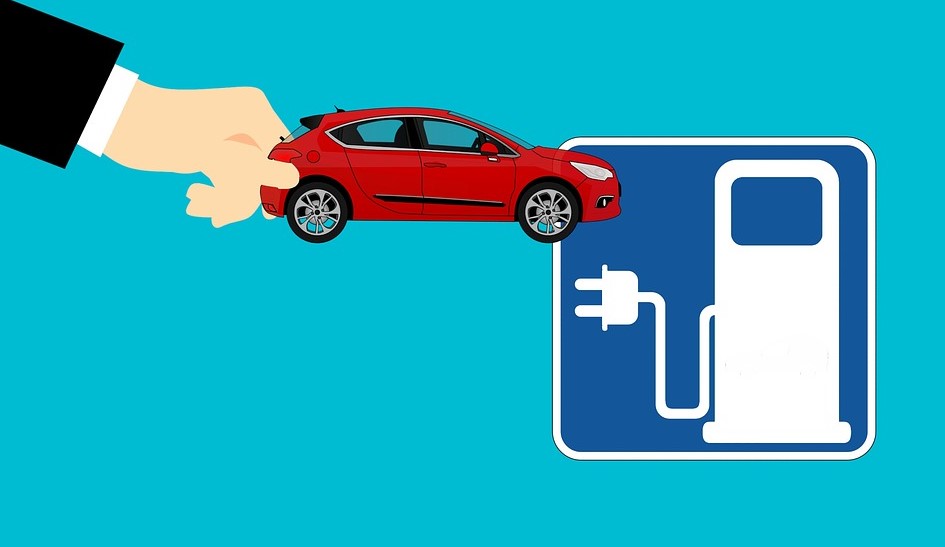 By B.N. Frank
By B.N. Frank
Maybe someday all Electric Vehicles (EVs) will be safer, more affordable, and more eco-friendly. In the meantime, various undesirable issues have been reported about all of them including
- battery fires that are difficult to extinguish
- biologically and environmentally harmful electromagnetic radiation emissions (see 1, 2, 3, 4)
- environmental destruction caused by mining for their lithium batteries
- higher service costs (see 1, 2)
Some EV problems have led to recalls. Last week Tesla recalled hundreds of thousands of its EVs in the U.S. and China due to reported safety issues. In August, GM recalled all Chevy Bolts due to battery fires. More recently the Washington Post provided more about this recall and others.
GM heralded this plant as a model for its electric car future. Then its batteries started exploding.
The company had to recall 141,000 Chevrolet Bolt electric vehicles, a microcosm of the challenge GM faces as it aims to shift its production to all-electric
ORION TOWNSHIP, Mich. — Before General Motors recalled the entire fleet of its most popular electric car because of fire dangers, before her factory was stilled, assembly line worker Carol McConkey stood in the middle of a teeming factory floor and marveled at how seamlessly the Chevrolet Bolt is manufactured.
The nine-year GM employee ducked under a car frame on an orange vehicle carrier, swung a mechanical arm out and drove five bolts into a nearly 1,000-pound battery pack with roughly the footprint of a bathtub.
“It does a lot of it by itself,” she said, describing the automation-heavy process at a GM plant that has gone from building gasoline-powered cars to making electric vehicles — the first such GM plant, which was soon followed by a second, a 30-minute drive down Interstate 75. “To me, it’s just a battery we plug in.”
But there is no mistaking its significance. “It’s the heart of the car,” McConkey said one day this past summer.
Little did she know that soon, the same section of the car she works on would garner worldwide attention for another reason: exploding lithium-ion batteries. She and hundreds of other workers were sent home to wait out an extended assembly line closure.
The crisis involving the Chevrolet Bolt was a painful reminder for the auto industry that despite treating the electric vehicle era as essentially inevitable — a technical fait accompli — significant obstacles to manufacturing the cars, and especially their batteries, continue to threaten that future.
“It’s a terrible thing that has happened,” Tim Grewe, GM’s general director for electrification strategy and cell engineering, said in an interview in September.
It’s the kind of disruption GM can ill afford as it aims to scale up its production of electric vehicles to 1 million units per year by 2025. The company wants to have a global lineup of 30 EVs by that year. And it plans to shift production away from gasoline-powered cars entirely in the next decade and a half.
Carmakers including Volkswagen, Mercedes-Benz and Ford also have announced plans to go all or mostly electric — chasing ambitions similar to GM’s deadline of 2035.
Plug-in cars are the future. The grid isn’t ready.
Today, electric cars — plug-in hybrids, battery-powered vehicles and hydrogen-fuel-cell vehicles — make up less than 5 percent of U.S. new-vehicle sales. But policymakers and automakers hope that by 2030, EVs will make up at least 40 percent of U.S. new-car sales. That would be a critical development in the nation’s strategy for reducing greenhouse gas emissions.
The Environmental Protection Agency announced stricter fuel-efficiency standards this month aimed at propelling the nation closer to that goal by 2026, estimating that the new standard will result in electric vehicles gaining about one-fifth of market share by then.
But first, automakers have to show they can manufacture safe and reliable cars — at scale.
“I don’t want to minimize this point, but it also lets us build confidence that we’re going to be transparent, we’re going to take action,” Grewe said.
Why batteries explode
Late last summer, Chevy Bolt owners received a notice from GM: They were not to park their cars within 50 feet of other vehicles. They shouldn’t charge their cars overnight. Fully charged vehicles, GM said, should not be kept in garages.
The recall of the Bolt covered all of the roughly 141,000 units GM had ever built. The company identified the issue as dual defects that led battery materials to make contact with one another and the components to combust spontaneously.
It’s a danger that comes directly from the core challenge of creating electric-vehicle batteries: the competition to pack more and more energy into them.
Activist Post reports regularly about Electric Vehicles (EVs) and unsafe technology. For more information, visit our archives and the following websites:
- Wireless Information Network
- Electromagnetic Radiation Safety
- Environmental Health Trust
- Physicians for Safe Technology
Image: Pixabay
Become a Patron!
Or support us at SubscribeStar
Donate cryptocurrency HERE
Subscribe to Activist Post for truth, peace, and freedom news. Follow us on Telegram, HIVE, Flote, Minds, MeWe, Twitter, Gab and What Really Happened and GETTR.
Provide, Protect and Profit from what’s coming! Get a free issue of Counter Markets today.

Be the first to comment on "GM Had to Recall 141,000 Chevy Bolt EVs due to Battery Fires and Explosions; Of Course, Battery Fires Not Isolated to Bolts"